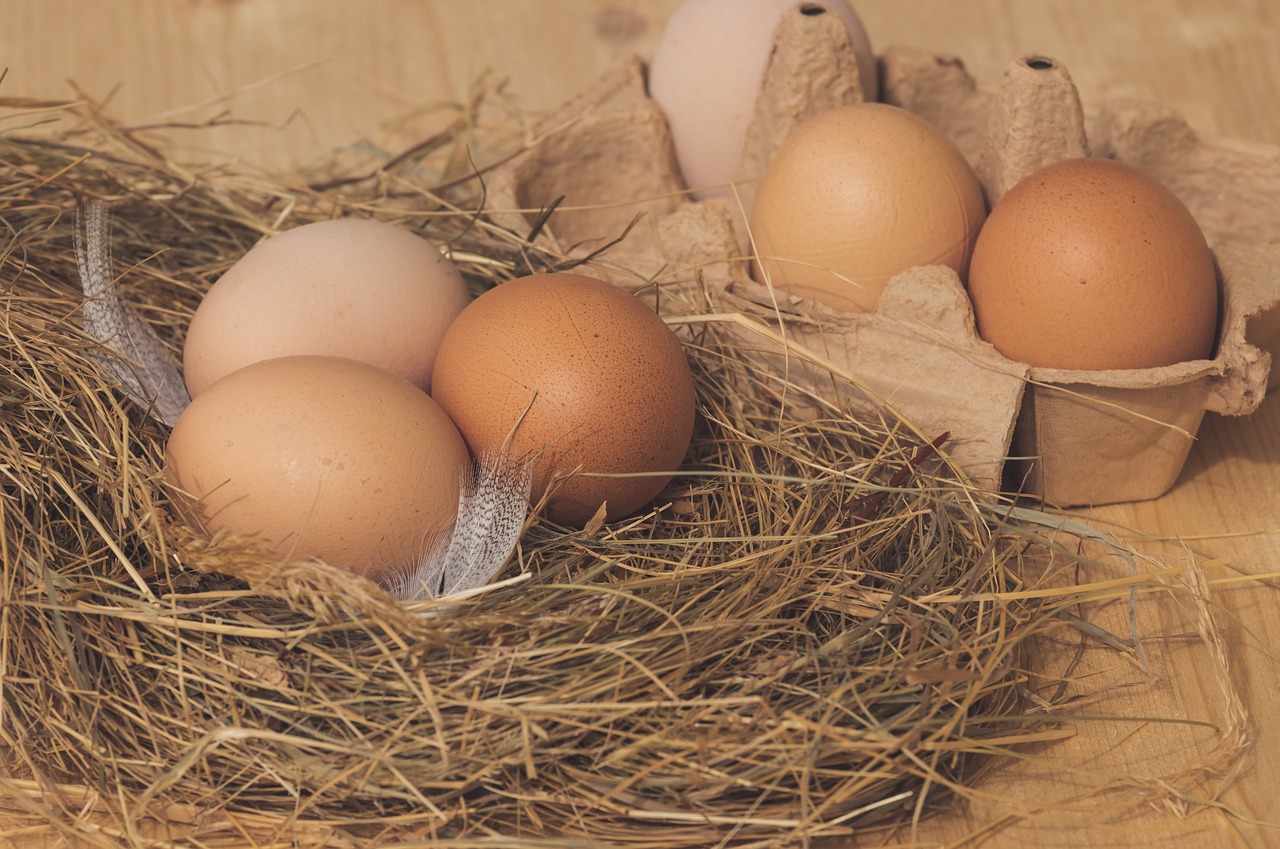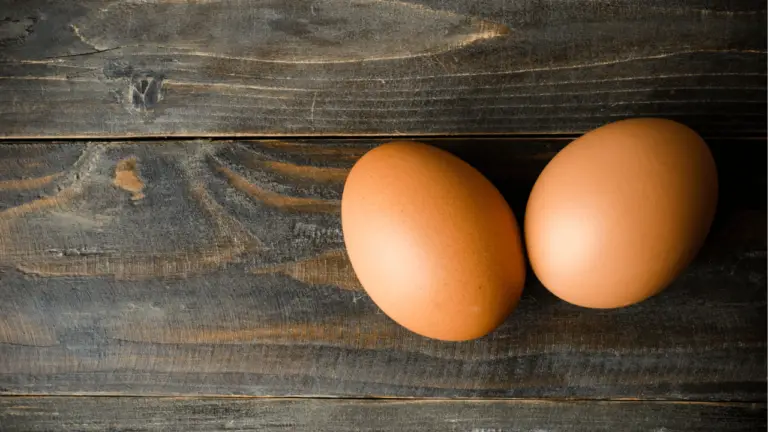Why Do Chickens Eat Their Own Eggs?

Chickens eating their own eggs can be perplexing and frustrating for poultry owners. This behavior, known as egg-eating, can reduce the number of eggs available for collection and disrupt the harmony within a flock. Understanding the reasons behind this behavior is crucial to effectively addressing and preventing it. In this article, we explore ten common reasons why chickens eat their own eggs and provide insights on how to manage this issue.
1. Nutritional Deficiencies
One of the primary reasons chickens eat their own eggs is due to nutritional deficiencies. If chickens are not receiving adequate amounts of essential nutrients, particularly calcium and protein, they may seek these nutrients from their eggs. Eggshells are rich in calcium, while the yolk contains protein, making them an attractive source of nutrition for deficient birds.
To prevent nutritional deficiencies, it’s important to provide a well-balanced diet that includes high-quality layer feed, supplemented with oyster shells or crushed eggshells for additional calcium. Ensuring that chickens have access to a variety of grains, greens, and proteins can help maintain their overall health and reduce the likelihood of egg-eating behavior.
2. Lack of Protein
A lack of protein in a chicken’s diet can lead to egg-eating. Chickens require a certain amount of protein to produce eggs, grow feathers, and maintain overall health. When their dietary protein is insufficient, they may resort to eating their own eggs to meet their nutritional needs.
Providing a diet that includes adequate protein is essential for preventing egg-eating. Layer feeds typically contain around 16-18% protein, which is suitable for most laying hens. Additionally, offering protein-rich treats such as mealworms, cooked eggs, or fish can help ensure chickens receive the protein they need to thrive.
3. Inadequate Calcium
Calcium is a crucial nutrient for egg-laying hens, as it is necessary for the formation of strong eggshells. When chickens do not receive enough calcium, they may start eating their own eggs to supplement their intake. This behavior can lead to further deficiencies and health issues.
To prevent inadequate calcium intake, provide your flock with a steady supply of calcium supplements. Oyster shells and crushed eggshells are excellent sources of calcium that can be offered free-choice. Ensuring your chickens have access to a high-quality layer feed with added calcium will also help maintain their shell strength and reduce egg-eating tendencies.
4. Stress and Boredom
Chickens are intelligent and curious animals that can become bored and stressed if not provided with adequate mental and physical stimulation. Stress and boredom can lead to destructive behaviors, including egg-eating. Factors such as overcrowding, lack of enrichment, and sudden changes in the environment can contribute to stress in chickens.
Providing a stimulating environment with plenty of space, perches, nesting boxes, and activities can help alleviate boredom and reduce stress. Enriching the coop and run with items like hanging vegetables, mirrors, and dust baths can keep chickens entertained and less likely to develop egg-eating habits.
5. Inadequate Nesting Boxes
Inadequate nesting boxes can contribute to egg-eating behavior. If there are not enough nesting boxes for the number of hens, or if the boxes are uncomfortable or poorly designed, hens may lay their eggs on the ground. Eggs laid on the ground are more likely to be damaged and eaten by the hens.
Ensure that you provide enough nesting boxes for your flock, typically one box for every 4-5 hens. Nesting boxes should be clean, comfortable, and private to encourage hens to lay their eggs there. Using soft bedding material such as straw or wood shavings can also help protect the eggs from damage.
6. Accidental Discovery
Sometimes, egg-eating begins by accident. A hen may accidentally break an egg while moving around the coop, and upon tasting the contents, develop a liking for eggs. Once a hen discovers the taste of eggs, she may continue to intentionally break and eat them.
To prevent accidental discovery, regularly collect eggs throughout the day to reduce the chances of eggs being broken. Using sturdy nesting boxes and providing ample bedding can also help prevent eggs from breaking accidentally.
7. Poor Egg Quality
Poor egg quality can lead to egg-eating. Eggs with weak or thin shells are more likely to break, making them easy targets for hungry hens. Factors such as age, diet, and health of the hens can affect egg quality.
To improve egg quality, ensure your hens have a balanced diet rich in calcium and other essential nutrients. Regularly monitor the health of your flock and address any underlying health issues promptly. Providing access to clean water and maintaining proper coop hygiene can also contribute to better egg quality.
8. Lack of Water
Dehydration can cause chickens to eat their own eggs. When hens do not have access to sufficient water, they may seek alternative sources of hydration, including the liquid content of eggs. Dehydration can also lead to stress and health problems, exacerbating egg-eating behavior.
To prevent dehydration, always provide your chickens with access to clean, fresh water. Ensure that waterers are clean and functioning properly, and check them frequently, especially during hot weather or freezing conditions. Providing multiple water sources can also help ensure all hens have access to water.
9. Overcrowding
Overcrowding in the coop can lead to increased stress, aggression, and egg-eating behavior. When chickens are confined in a small space, they are more likely to develop bad habits and behaviors due to the lack of personal space and competition for resources.
To prevent overcrowding, provide adequate space for your flock. A general guideline is to allow at least 4 square feet of indoor space and 10 square feet of outdoor space per bird. Additionally, ensure there are enough perches, nesting boxes, and feeding stations to reduce competition and stress among the hens.
10. Learned Behavior
Egg-eating can become a learned behavior within a flock. If one hen starts eating eggs, others may observe and mimic the behavior. This can quickly turn into a widespread issue if not addressed promptly.
To prevent the spread of egg-eating behavior, isolate any hens that are caught eating eggs. Removing problem hens from the flock temporarily can help break the cycle. Additionally, using roll-away nesting boxes, where eggs roll out of reach after being laid, can prevent hens from accessing and eating eggs.
By understanding the various reasons behind egg-eating and taking proactive measures, poultry owners can effectively manage and prevent this behavior. Providing a well-balanced diet, a stress-free environment, and proper housing are key factors in maintaining a healthy and productive flock.






